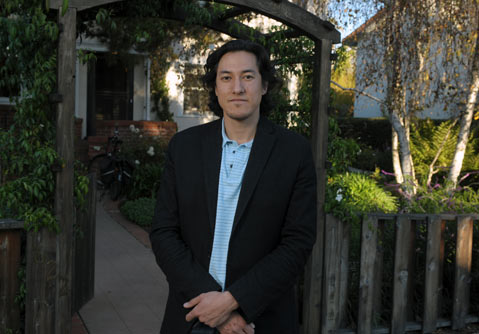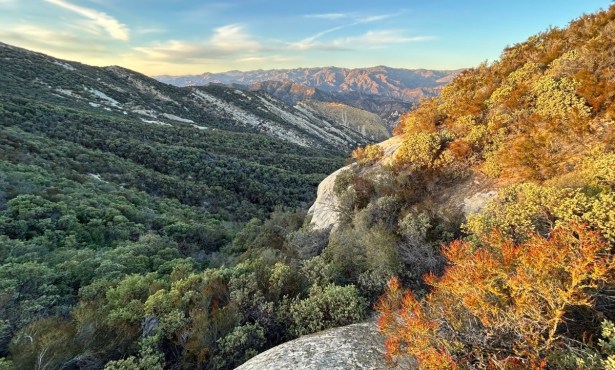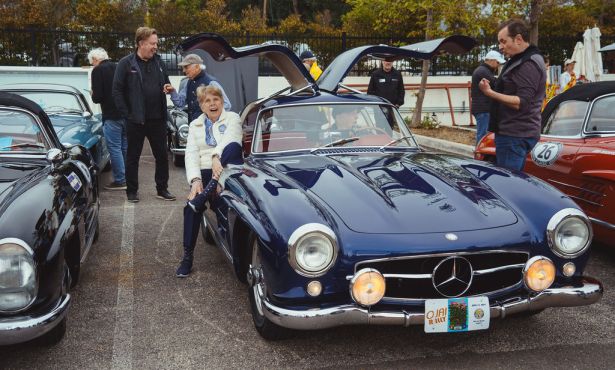Paul Chappell
Making World Peace Possible

“Peace needs a verb,” argues former Army Captain and West Point grad Paul Chappell, who left active duty two years ago to begin lecturing internationally on how to “wage” peace in his role for the Santa Barbara-based Nuclear Age Peace Foundation. “We need to study war to end war, like doctors study diseases and illnesses in order to cure them.”
To date, the Santa Barbara resident has penned three books — Peaceful Revolution, The End of War, and Will War Ever End?, with a fourth on the way — has been endorsed by Bishop Desmond Tutu, is the subject of a documentary, and teaches workshops on waging peace across the country, including a seven day intensive each summer in Santa Barbara. He recently answered a few of The Independent‘s questions.
The history of our species seems defined by conflict. How do we rise above that apparently inherent battle for resources to achieve a lasting peace?
I have spent much of my life studying war, and it has changed my attitude in two major ways. It has made me very skeptical about the nature of politics and very hopeful about human nature. Although wars are often about resources, most people aren’t willing to die for resources. What most people will die for is their family, country, freedom, and ideals. This is why national leaders throughout history tell their people that wars are necessary for self-defense, protecting their way of life, and liberating oppressed people, but you don’t hear ancient Greek or modern American politicians tell their people that they are fighting for gold, silver, oil, etc.
If you want to know whether people are naturally loving or violent, all you have to do is examine war propaganda. War propaganda manipulates our most powerful instincts, which are love of family, love of freedom, and the desire to help others. According to propaganda, wars are always about liberating people and self-defense. There has never been a war in history where the invaders openly said, “We’re going to war for the money.”
Also, war propaganda never portrays the other side as human. It hides the fact that we’re killing other human beings. Instead, we’re killing monsters; we’re killing cockroaches; we’re killing sub-humans. If we were naturally violent, our leaders could openly tell their people, “I’m going to give you a chance to kill people so that I can get richer, and I’ll even pay you!” But in reality, that would be a very ineffective form of propaganda. As more people learn the truth about war, peace, and human nature, we will make further progress on the road to peace.
What are practical steps that each of us can make on the path to peace?
If politicians today said, “We should bring back slavery and segregation, and women should not be allowed to vote or own property,” people would look at them like they were insane. But 200 years ago, the majority of Americans supported those viewpoints. My father was half-white and half-black, my mother was Korean, and I grew up in Alabama. The fact that I am not a slave or living under segregation today makes me living proof that progress is possible, and every American woman is also living proof. Two hundred years ago in America, women couldn’t vote or own property. We have a long way to go as a society, but in order to continue making progress we must understand how far we have come, and how we got here.
The practical steps on the path to peace include increasing awareness and changing how people think. All human problems, including racism, sexism, war, oppression, injustice, and environmental destruction, come from how people think, and all progress comes from changing how people think. To teach these and other practical steps, I offer training in peace leadership and waging peace that teaches how to do more than preach to the choir by changing how people think about controversial issues. Our political system can in fact work if people are educated, aware, and empowered to take action. If people in a democracy are not educated or empowered, that democracy can become as dangerous as a dictatorship.
Why have you chosen Santa Barbara as a homebase to spread these ideas?
While I was on active duty in the army and stationed at Fort Bliss in El Paso, Texas, I wrote a book called Will War Ever End? David Krieger, the president of the Nuclear Age Peace Foundation, read the book, e-mailed me, and we began corresponding on a weekly basis. When I left active duty in late 2009, I was very fortunate to get a job working at the Nuclear Age Peace Foundation.
So that’s how I ended up here, and I have made this my homebase because I couldn’t imagine working with a better group of people. It’s impossible to be pessimistic when I know inspiring people like David and all of the wonderful people at NAPF. To me what truly makes any place special is its people, and the Santa Barbara community has some of the most compassionate and amazing people I have ever met. I am also working through some personal trauma issues, so for me it’s an ideal place to heal and work for peace.
4•1•1
For more info, see www.peacefulrevolution.com.



